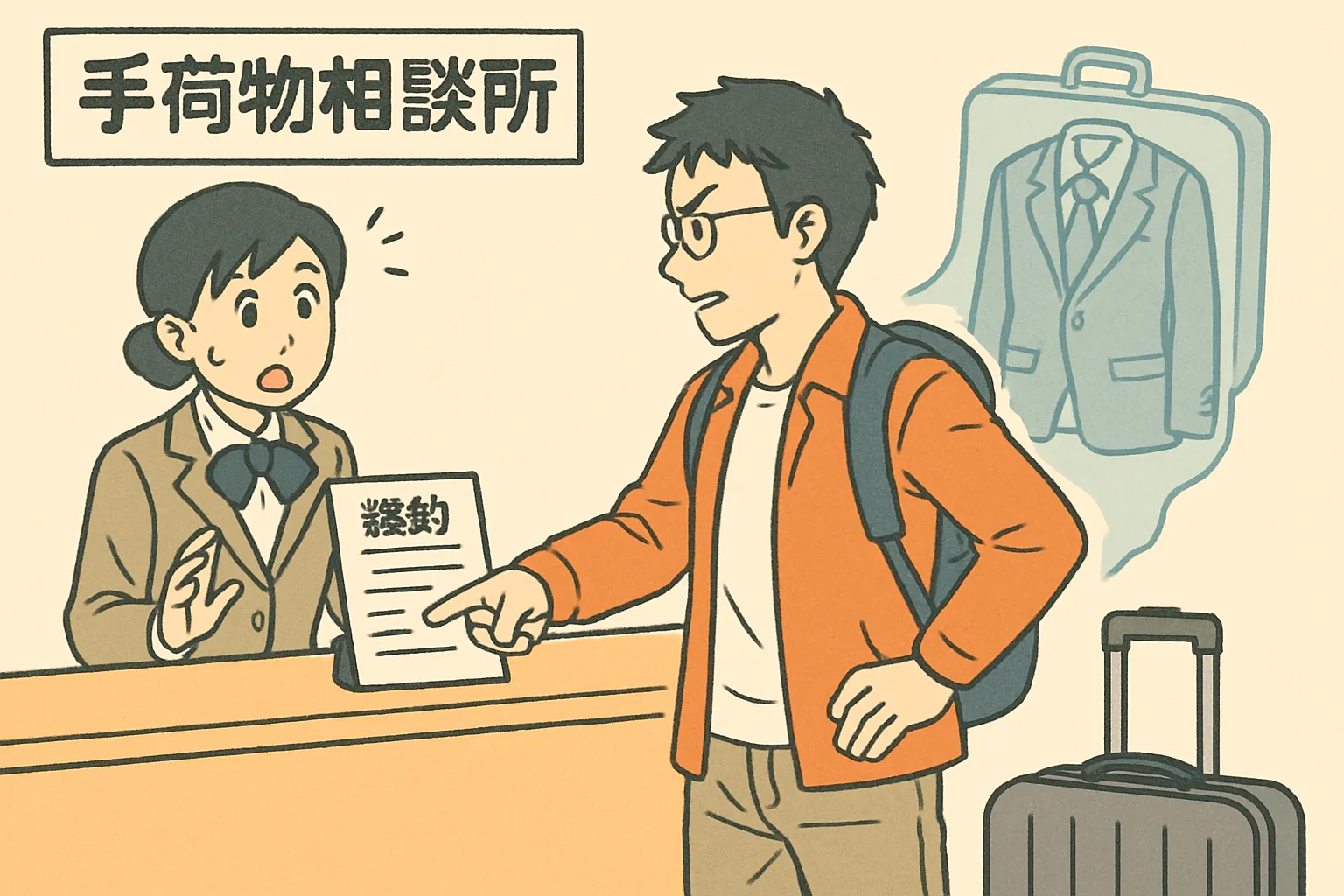Korean Platform Disputes: Master the Language of Mediation
Hello! Welcome to Maeil Hangeul, the place to upgrade your Korean skills!
Have you ever used a sharing economy app in Korea like Karrot (당근) to buy something secondhand, or rented a place on Airbnb (에어비앤비)? These platforms are incredibly convenient, but sometimes, things go wrong. What happens when the item you received isn’t as described, or a dispute arises with the service provider? Today, we’re diving into the advanced Korean needed to navigate and mediate these conflicts like a pro.
Lately in Korea, the sharing economy has exploded, becoming a part of daily life. This means that conflicts between users and providers are also on the rise. Knowing how to formally express your position and understand the mediation process is a C1-level skill that is immensely useful, whether you’re a user or even working for a Korean platform company. Let’s learn how to handle these tricky situations with calm, confidence, and the right vocabulary!
Core Expressions for Conflict Resolution
Here are four key phrases that will make you sound professional and capable when discussing disputes.
1. 중재에 나서다 (jungjae-e naseoda)
- Romanization: jungjae-e naseoda
- English: To step in to mediate / to intervene for mediation
- Detailed Explanation: This is a formal expression used when a third party, like the platform’s customer service team, officially decides to get involved in a dispute. ‘중재(仲裁)’ means mediation or arbitration, and ‘나서다’ means to step forward or take action. It signals the beginning of a formal resolution process, far more official than simply ‘도와주다’ (to help).
- 💡 Pronunciation Tip:
The key here is the smooth connection, or liaison (연음), between ‘중재에’ and ‘나서다’. In ‘중재에’ [중재에, jungjae-e], the sounds flow together naturally. This phrase is pronounced just as it’s written, but focus on delivering it with a clear, assertive tone to match its formal meaning.
2. 양측의 입장을 충분히 고려하다 (yangcheugui ipjangeul chungbunhi goryeohada)
- Romanization: yangcheugui ipjangeul chungbunhi goryeohada
- English: To fully consider the positions of both sides
- Detailed Explanation: This is a cornerstone phrase in any negotiation or mediation. It demonstrates impartiality and thoroughness. Let’s break it down:
- 양측 (yangcheuk): Both sides/parties
- 입장 (ipjang): Stance, position, point of view
- 충분히 (chungbunhi): Sufficiently, fully
- 고려하다 (goryeohada): To consider
Using this phrase shows that you are approaching the problem fairly and rationally.
- 💡 Pronunciation Tip:
Watch out for tensing (된소리되기)! The word ‘입장’ is often pronounced [입짱, ipjjang]. The final consonant ‘ㅂ’ in ‘입’ causes the following ‘ㅈ’ to become the tensed ‘ㅉ’ sound. Also, in natural, fast speech, the possessive particle ‘의’ in ‘양측의’ is often pronounced like [에, e], making it sound like [양츠게, yangcheuge].
3. 원만하게 합의에 이르다 (wonmanhage habuie ireuda)
- Romanization: wonmanhage habuie ireuda
- English: To smoothly reach an agreement / To come to an amicable settlement
- Detailed Explanation: This phrase describes the ideal outcome of any dispute. ‘원만하게 (wonmanhage)’ is a crucial adverb meaning “amicably,” “smoothly,” or “without trouble.” ‘합의에 이르다 (habuie ireuda)’ is a more formal and literary way of saying ‘합의하다’ (to agree), literally meaning “to arrive at an agreement.” It’s the perfect expression for business reports or formal communication about a successful negotiation.
- 💡 Pronunciation Tip:
Liaison is key again! ‘합의에’ is pronounced [하븨에, habuie] as the ‘ㅂ’ sound moves into the empty consonant space of the next syllable. The phrase flows together without any pauses: [원만하게 하븨에 이르다].
4. 귀책 사유를 따지다 (gwichek sayureul ttajida)
- Romanization: gwichek sayureul ttajida
- English: To determine the cause for which one is responsible / to argue over who is at fault
- Detailed Explanation: This is a very formal, almost legalistic term you’ll encounter in terms of service or official disputes. ‘귀책 사유 (gwichek sayu)’ means “a reason for which one is responsible” or simply “fault.” ‘따지다 (ttajida)’ means to question meticulously or to get to the bottom of something, often with a nuance of demanding an explanation. This phrase is used when the focus shifts to assigning blame.
- 💡 Pronunciation Tip:
The most important sound here is the tensed ‘ㄸ’ in ‘따지다’ [따지다, ttajida]. Make sure to produce a sharp, strong ‘tt’ sound, distinct from ‘ㄷ(d)’ or ‘ㅌ(t)’. This tensed sound is critical for making the word sound accurate and native-like.
Example Dialogue
Here’s how these expressions might be used in a conversation between a platform’s customer service agent (A) and a user (B).
- A (CS Agent): 고객님, 먼저 불편을 드린 점 진심으로 사과드립니다. 저희 플랫폼 측에서 즉시 중재에 나서서 정확한 사실 관계를 파악하겠습니다.
(Sir/Ma’am, first, I sincerely apologize for the inconvenience. Our platform will immediately step in to mediate and understand the factual basis of the situation.) - B (User): 저는 계약서대로 이행했을 뿐인데, 상대방이 제게 귀책 사유를 따지니 정말 답답합니다.
(I just followed the contract, but the other party is trying to determine my fault, which is incredibly frustrating.) - A (CS Agent): 네, 심려가 크시겠습니다. 보내주신 자료와 상대방의 주장을 양측의 입장에서 충분히 고려하여, 모두가 원만하게 합의에 이를 수 있도록 최선을 다하겠습니다.
(Yes, I understand you must be very concerned. We will do our best to ensure everyone can reach an amicable agreement by fully considering the positions of both sides, based on the materials you sent and the other party’s claims.)
Culture Tip & Trend Deep Dive
In Korea’s dynamic and digitally-driven society, a platform’s reputation is everything. The concept of “CS” (Customer Service) is taken very seriously. When disputes arise on platforms like Karrot (당근) or ride-sharing apps, the platform’s ability to mediate effectively is crucial for maintaining user trust.
Using formal, de-escalating language like ‘양측의 입장을 충분히 고려하여’ is not just polite; it’s a strategic tool. It shows respect and assures the customer that the process will be fair, which can prevent the situation from worsening. The ultimate goal is always to achieve a ‘원만한 합의’ because negative online reviews can severely damage a provider’s or platform’s business. If you work in a Korean company, mastering this formal communication style for handling claims (‘클레임 처리’) is an invaluable professional skill.
Wrap-up & Practice!
Today, we learned four advanced Korean expressions essential for navigating conflicts in the modern sharing economy.
* 중재에 나서다 (to step in to mediate)
* 양측의 입장을 충분히 고려하다 (to fully consider both sides’ positions)
* 원만하게 합의에 이르다 (to reach an amicable agreement)
* 귀책 사유를 따지다 (to argue over who is at fault)
Now it’s your turn to practice!
- Fill in the blank:
두 사람의 갈등이 깊어지자, 팀장님이 결국 (__________) 결정했다.
(As the conflict between the two deepened, the team leader finally decided to __________.) -
Sentence Building:
Imagine you successfully resolved a misunderstanding about payment with your landlord. Write a sentence using the phrase ‘원만하게 합의에 이르다’ to describe the outcome.
We’d love to see your answers! Leave a comment below using one of the expressions you learned today. Keep up the great work






